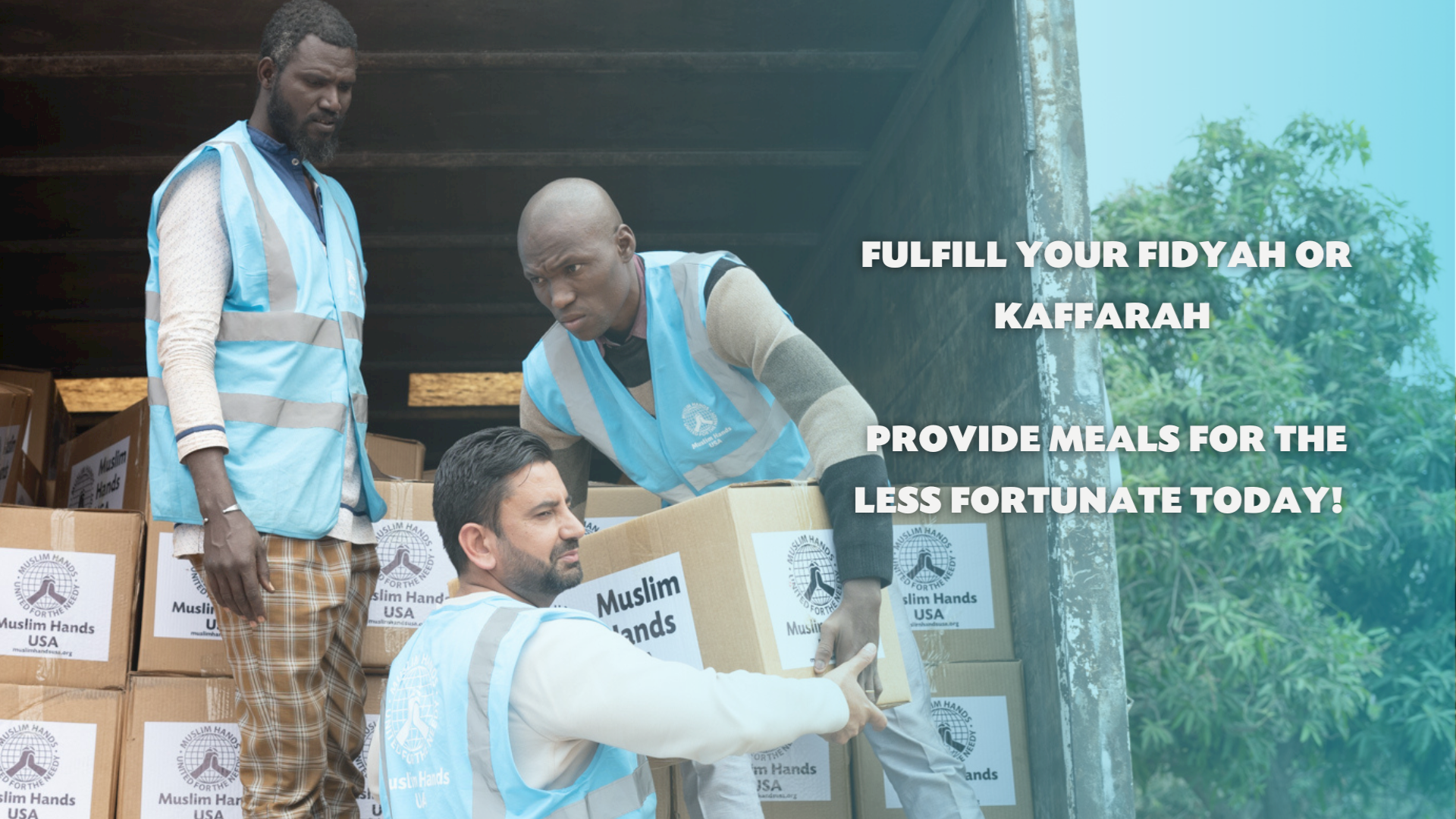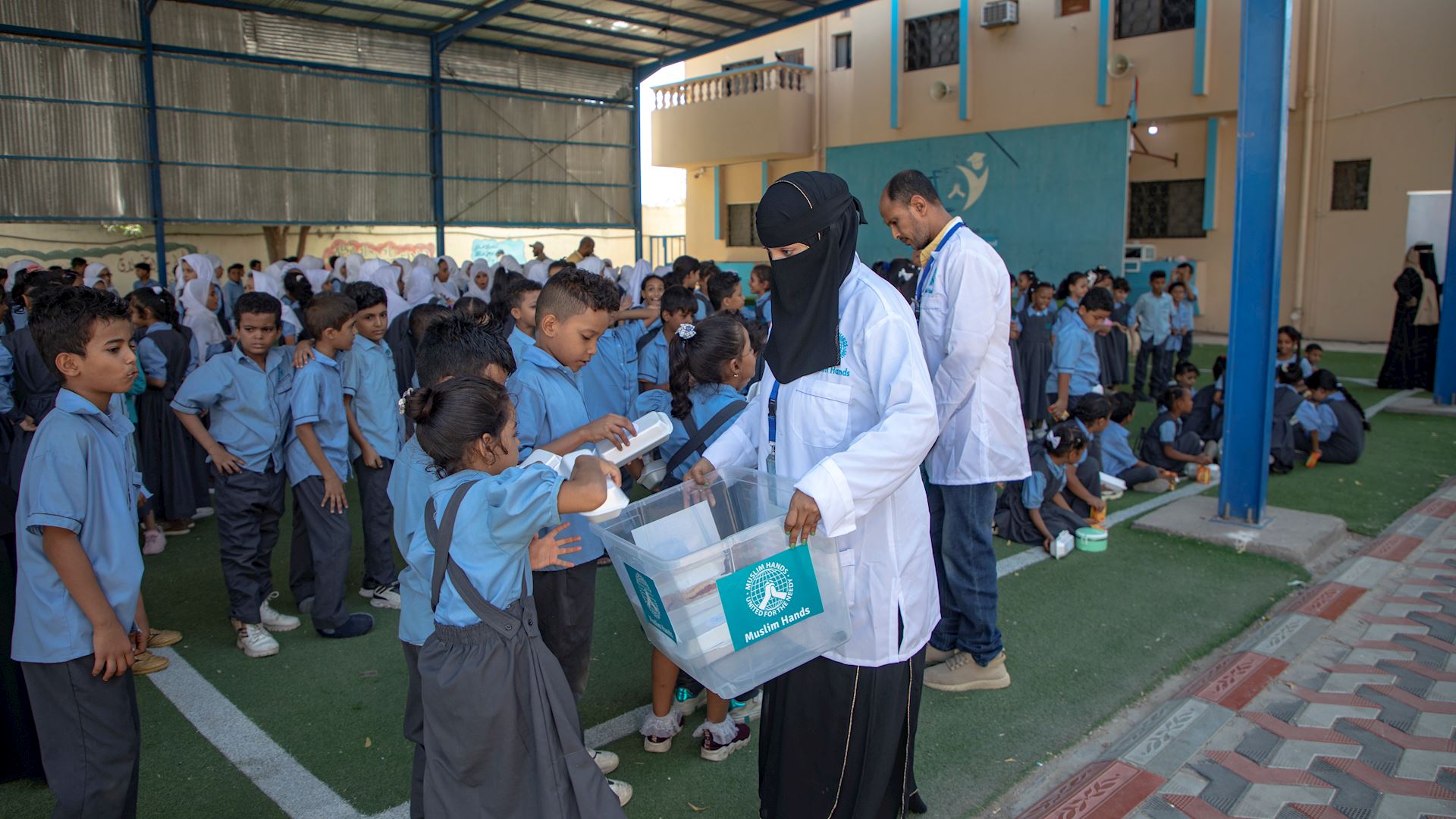Fidyah & Kaffarah: Understanding the Difference and How Your Donation Helps

Fidyah and Kaffarah are two types of compensation for missed fasts during Ramadan. Whether due to illness, old age, or an intentional break, these obligations ensure that those in need receive food and support. At Muslim Hands USA, we make it easy for you to fulfill these duties while helping provide meals to those in crisis.
What is Fidyah?
Fidyah is charitable compensation that is given when you cannot fast for a valid reason and cannot make up for the fast later.
Who Pays Fidyah?
Fidyah usually applies to the elderly who can't fast due to weakness caused by old age, especially those who are on life-saving medication. Then, some people suffer from chronic illness with no hope of recovery. Finally, Pregnant or breastfeeding women are exempt from fasting if their fast can cause them or the baby harm.
What is the Amount of Fidyah?
This typically includes two meals or staple food such as wheat or rice. The exact amount is $8 a day or $240 a month, but the purpose is to ensure that someone in need is fed in place of the fast you could not keep.
Islam is a faith of compassion, and as stated in the Quran:
"Allah intends for you ease and does not intend for you hardship"
(2:185)
This emphasizes that fasting should not be a source of difficulty.
Through Muslim Hands USA, your Fidyah directly supports food-insecure communities, ensuring your obligation is fulfilled while making a real difference.

What is Kaffarah?
Kaffarah is a penalty for intentionally breaking a fast in Ramadan without a valid excuse. It carries a much heavier obligation than Fidyah.
Who Pays Kaffarah?
Anyone who eats, drinks, or engages in marital relations during a fast without a valid excuse.
How to pay Kaffarah
If you intentionally break your fast, the amount due is $480 a month. If you're wondering what to do next. There's a way to make up for it in Islam: through Kaffarah—a form of repentance and charity. But how does it work?
Each day, you intentionally break a fast, fasting for 60 consecutive days or feeding 60 poor people. That means if you missed one fast on purpose, you owe either 60 days of fasting or meals for 60 people.
If you broke multiple fasts on different days, the obligation applies to each day separately. Since this can get complicated, checking with a scholar if you're unsure is always good.
If fasting for 60 days straight feels impossible, you can give Kaffarah by feeding those in need.
At Muslim Hands USA, your donation provides food to people in crisis, ensuring that your repentance is accepted and brings relief to those who need it most.

Key Differences Between Fidyah & Kaffarah
Reason for Payment:
- Fidyah: This is when someone cannot fast for a valid reason, such as chronic illness, old age, or pregnancy, and cannot make up for the fast later.
- Kaffarah: Required when someone deliberately breaks a fast without a valid excuse, such as eating, drinking, or engaging in marital relations during a fast.
Obligation:
- Fidyah: Feed one poor person per missed fast by providing meals or staple food.
- Kaffarah: Either fast for 60 consecutive days or feed 60 poor people per intentionally broken fast.
Alternative Options:
- Fidyah: There is no alternative, but it must be fulfilled through food donation.
- Kaffarah: If fasting for 60 days isn't possible, feeding 60 poor people is the alternative
Fidyah and Kaffarah provide a way to fulfill religious obligations while supporting those in need. Through Muslim Hands USA, your donations help provide meals to struggling families, making it easy to meet your duty while making a meaningful impact.
Give Your Fidyah or Kaffarah Now















